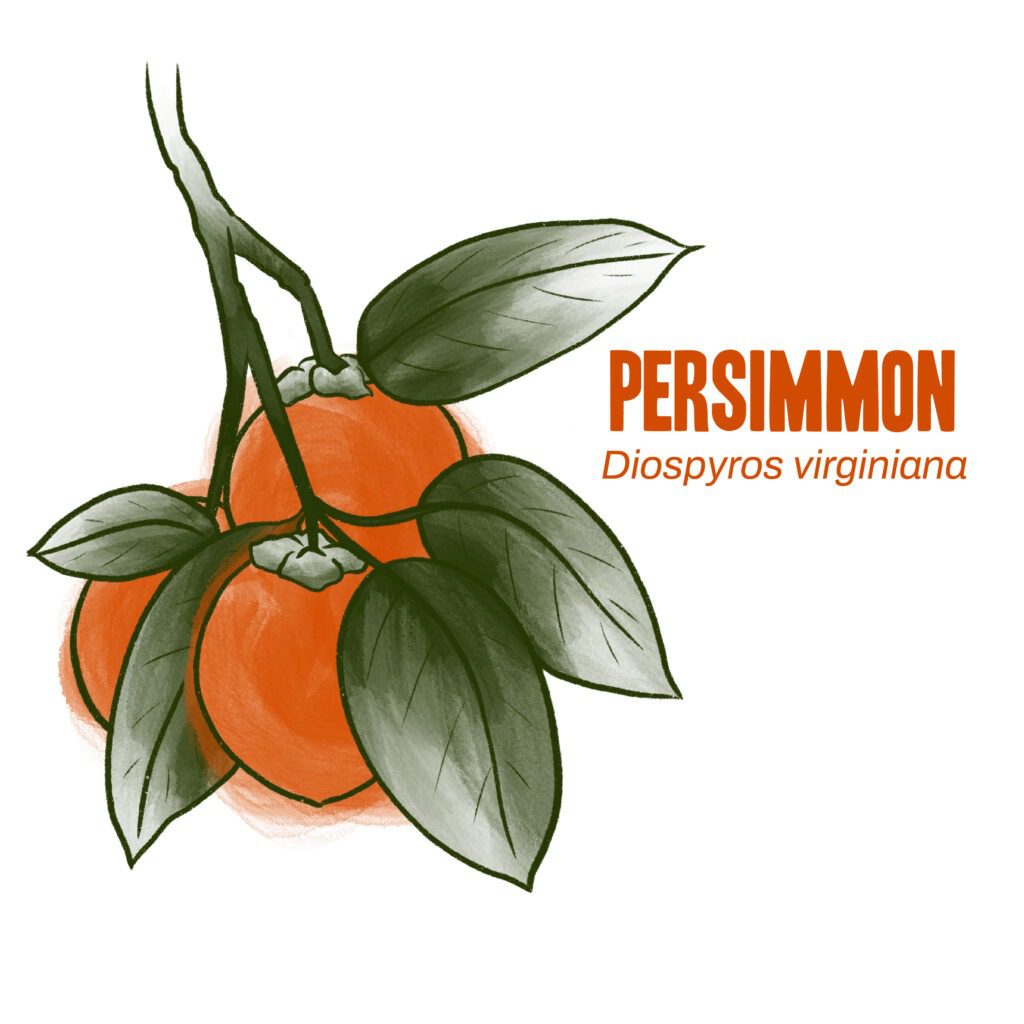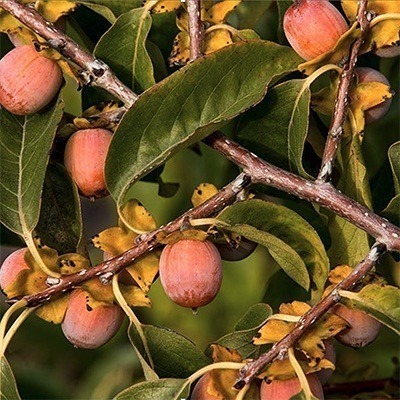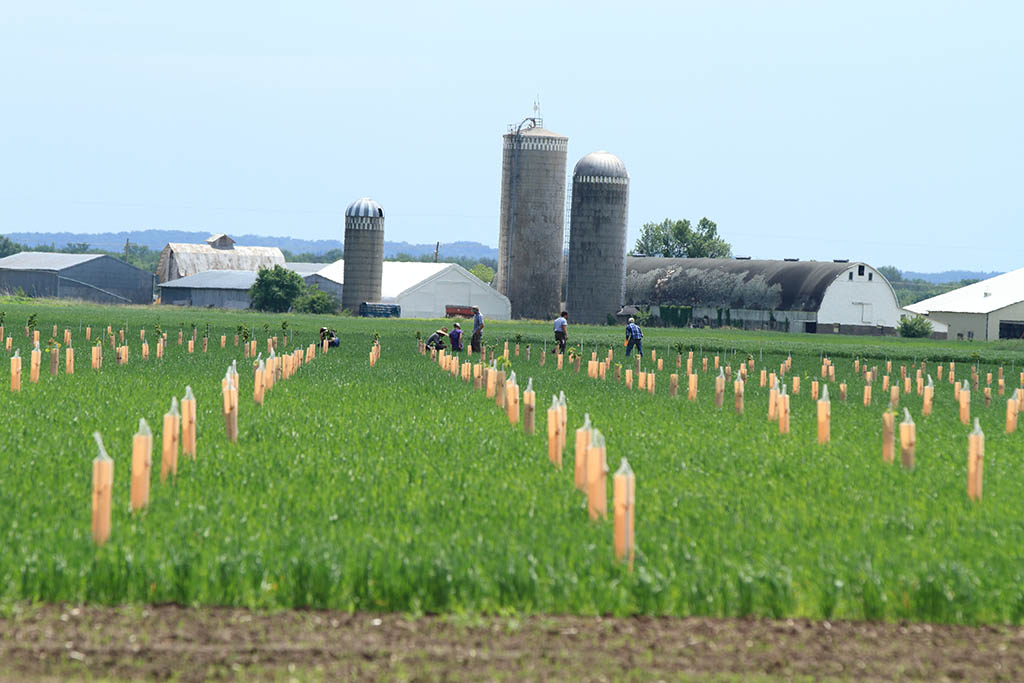
Persimmon
Diospyros virginiana
Persimmon trees produce the most nutritionally dense native fruit in North America, and are a well-regarded timber crop. Easy-to-grow and suitable for a vast geography. Persimmon is well-suited for silvopasture systems, and the fruit is also processed and sold as pulp.
DRAINAGE: Moderate to well-drained soils
LIGHT: Full sun
ZONES: 4–10
SPACING: 15–20 ft
YEARS TO PARTIAL/FULL BEARING: 4
Opportunities
When grown on pasture persimmon’s canopy allows for the generous transmission of light, allowing grasses and forages to thrive. This increases the carbon sequestration of such systems, while also providing high-quality pasture for grazing livestock. Animals also eat fallen fruit from the persimmon trees, which provides an affordable livestock feed.
Challenges
Despite the multiple uses and markers for American persimmon, it has remained untouched by public and private breeding programs. Savanna Institute’s tree crop breeders are conducting cold-tolerance trials to improve the hardiness of the American persimmon.
Management
Common sense precautions, as well as legal regulations, govern best practices to prevent livestock manure from contaminating fruit for human consumption.
Our Research
Due to the pre-existing disease and pest resistance of American persimmon, our tree crop breeders are working to expand the tree’s range northward by selecting for cold hardiness.


RESOURCE
Persimmon Resources
- Review more basic grower information about plant selection and management.
- See an economics case study and find more sources for information.
- You can also print this handout to use at educational events or for outreach.


One-On-One Support for Farm Planning
Technical Assistance Program
Get help planning your perennial farm system. Our Technical Assistance Program is here to guide you through the process of planning, funding, and planting trees on your farm.

Looking For Plants?
Canopy’s Nursery offers plant material in your region. Find chestnut, walnut, pecan, hazelnut, heartnut, persimmon, pawpaw, black currant, and elderberry for order in their online store. Not only does Canopy increase the availability of high-quality plant material in the region, it also donates part of its proceeds to Savanna Institute’s nonprofit research and education mission.

